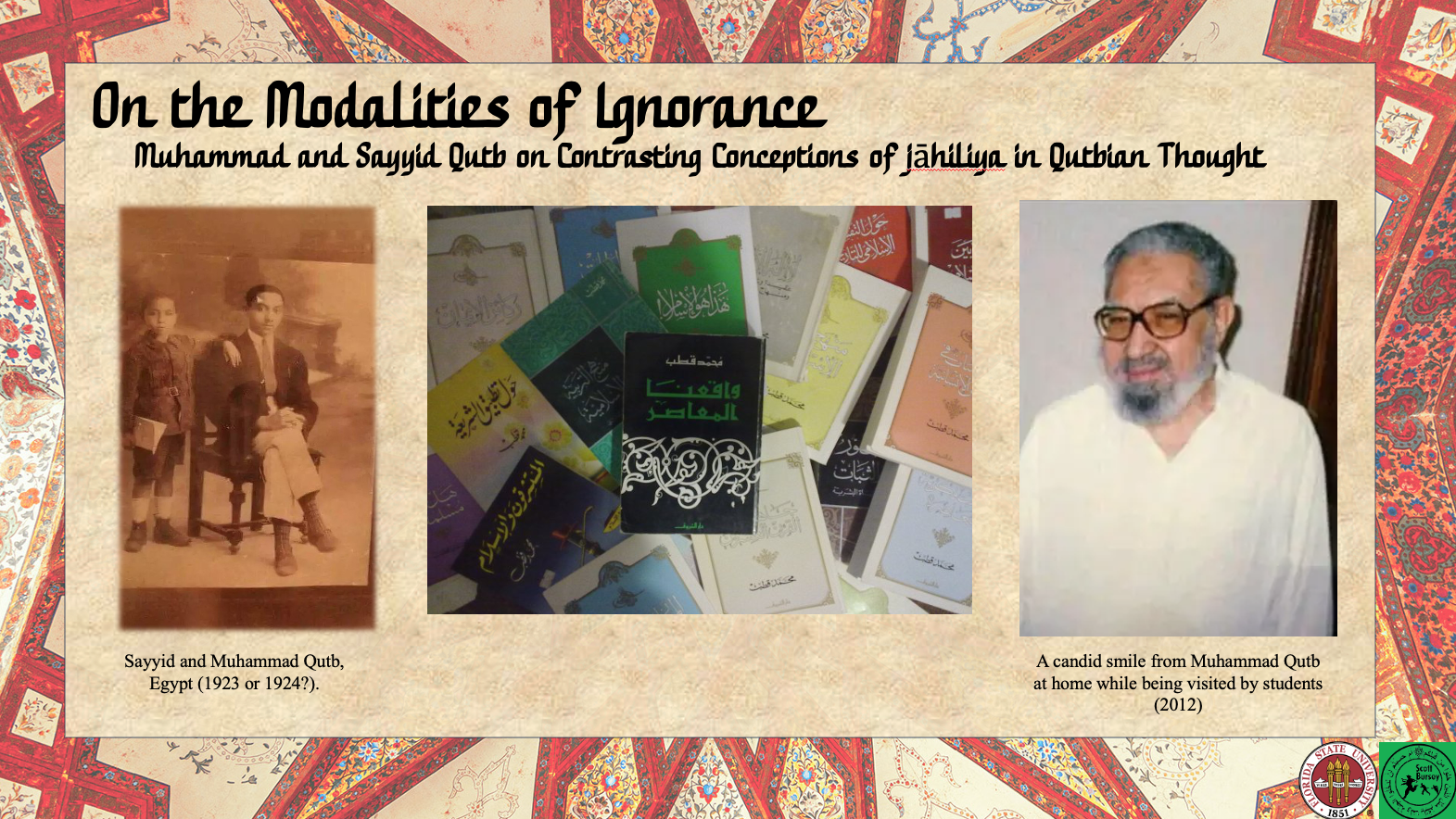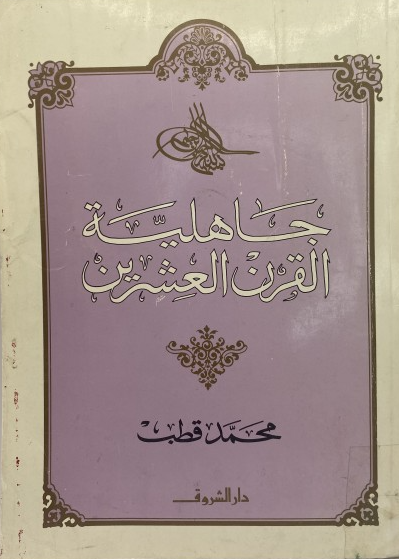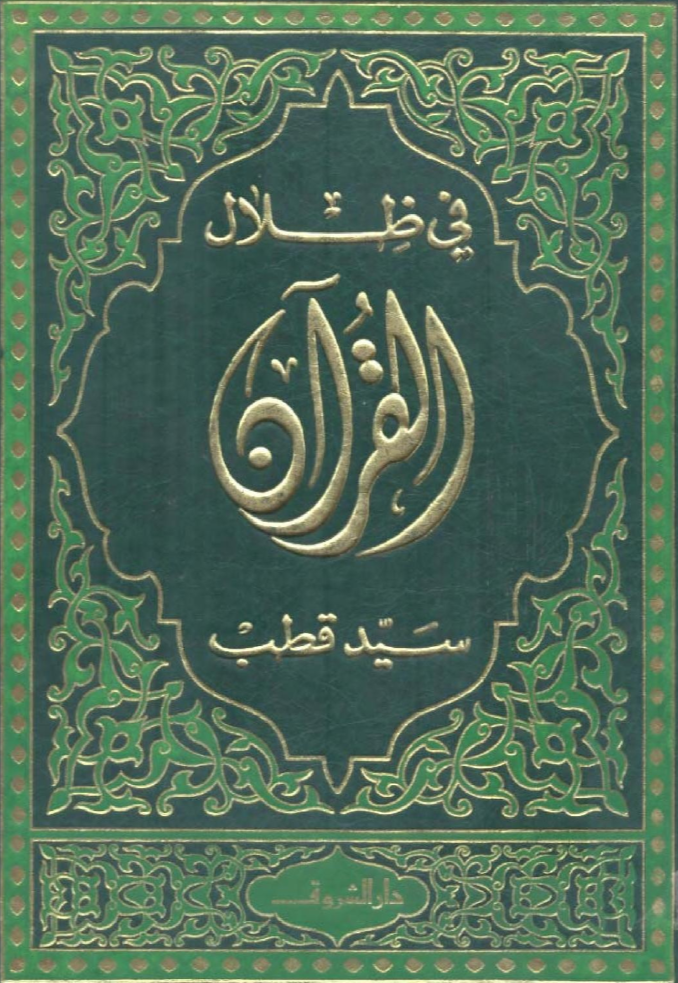For Sayyid Qutb (1909-1966), jāhilīya (ignorance) was much more than an episodic period of the Islamic past. Rather, jāhilīya was far reaching and extended well beyond an ignorance of religion, and well into the realm of western modernity, specifically: accepting the material comforts of the decadent west, asserting subjective rationality over God’s sovereignty over man, and existing in an era of cultural, social, political and artistic ignorance so far removed from religion that it is more akin to the Hobbesian state of nature. There exists a degree of academic consensus as to the nature of jāhilīya as conceived by Sayyid Qutb, and how for him this conceptual tool of perceptual ignorance is utilized as a way of casting the other in the veil of pre-Islamic ignorance. However, it is the intention of this paper to question this consensus by way of discursive Qur’anic commentary to analyze the uniformity of Qutbian thought on jāhilīya against that of Sayyid’s younger brother, Muhammad Qutb (1919-2014). Muhammad’s conception of ignorance is nuanced within the diction of subjective dispositions, psychological states, and as an essence or moods of jāhilīya, and presents a precedent that Qutbian conception of jāhilīya is like a coin, with two sides.




